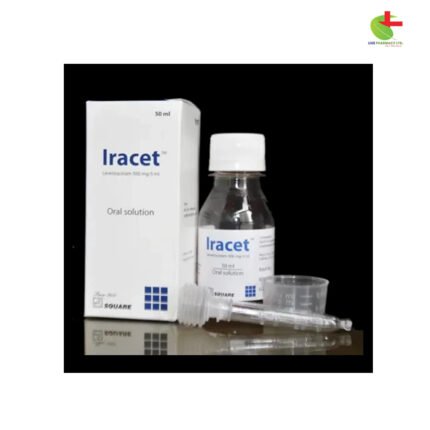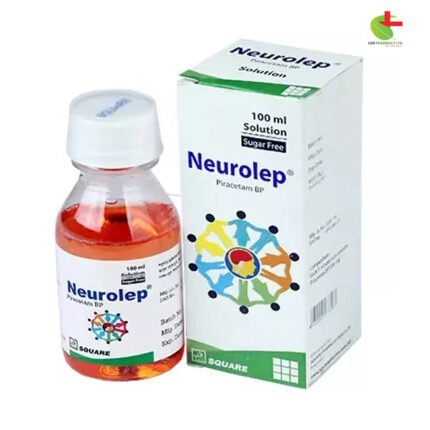Ofran Oral Solution
50.00৳ Bottle (50 ml)
- Ofran, a potent serotonin subtype 3 (5-HT3) receptor antagonist, effectively prevents and manages nausea and vomiting.
- Ideal for patients undergoing cancer chemotherapy, radiotherapy, and post-operative procedures.
- Rapid dissolving oral soluble film formulation for easy administration without the need for water.
- Precise dosing instructions catered to different patient demographics ensure optimal care.
- Trust Ofran for reliable medication support throughout your healthcare journey.
 Brand
Brand
|
Square Pharmaceuticals PLC |
|---|---|
 Generics
Generics
|
Ondansetron |
Indications
Ofran serves as a serotonin subtype 3 (5-HT3) receptor antagonist with the following indications:
- Prevention of nausea and vomiting linked with initial and subsequent rounds of emetogenic cancer chemotherapy.
- Prevention and management of post-operative nausea and vomiting.
- Prevention of nausea and vomiting induced by radiotherapy.
Description
Ofran oral soluble film is formulated for rapid dissolving on the tongue within 20 seconds, eliminating the need for water for swallowing. Its active ingredient, Ofran base, acts as a selective blocker of serotonin 5-HT3 receptors.
Pharmacology
Ondansetron, the active component of Ofran, functions as a potent and highly selective 5HT3 receptor antagonist. Its exact mechanism in controlling nausea and vomiting is not fully understood, but it is believed to inhibit the vomiting reflex triggered by chemotherapy and radiotherapy by blocking serotonin receptors in the peripheral and central nervous systems.
Dosage
Dosage varies depending on the indication:
- For Chemotherapy-Induced Nausea and Vomiting, dosages are specified for adults, pediatric patients, and injection administration.
- For Radiotherapy-Induced Nausea and Vomiting, different dosages are recommended for adults.
- For Postoperative Nausea and Vomiting, dosage recommendations are provided for adults and pediatric patients.
Administration
Detailed steps for administering the oral soluble film are outlined, emphasizing the importance of following medical advice.
Interaction
Ofran’s interaction with the cytochrome P-450 drug-metabolizing enzyme system is explained, along with precautions regarding concurrent use of apomorphine.
Contraindications
Patients with known hypersensitivity to Ofran or its components are advised against its use, as well as those using apomorphine concurrently.
Side Effects
Commonly reported adverse events include headache, constipation, and diarrhea, usually of mild or moderate severity. Rare but serious side effects are also mentioned, along with the absence of evidence for extrapyramidal reactions.
Pregnancy & Lactation
Studies indicate no carcinogenic or mutagenic effects in animals. Caution is advised in pregnant and nursing women due to potential excretion of Ondansetron in breast milk.
Precautions & Warnings
Special precautions regarding hypersensitivity reactions, use post-abdominal surgery, and in patients with chemotherapy-induced nausea and vomiting are highlighted.
Use in Special Populations
Dosage recommendations for patients with impaired renal or hepatic function, pediatric patients, and the elderly are provided.
Therapeutic Class
Ofran falls under the category of anti-emetic drugs.
Storage Conditions
Proper storage conditions are recommended to maintain the drug’s efficacy.













Reviews
There are no reviews yet.